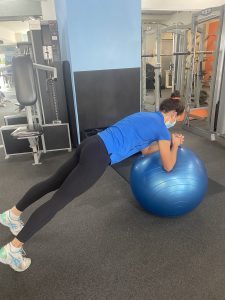Strength Training for Long-Distance Runners
Today, Longevity Exercise Physiology Drummoyne, Edgecliff, Marrickville, Bella Vista, Randwick, Pymble, Balmain, Neutral Bay, Coburg – Melbourne, and Barrie, Ontario – Canada discuss strength training for long distance runners.

Strength training is any form of exercise involving resistance or weights. Strength training builds muscle size and strength and protects your bones and joints. Long distance runners of all abilities should supplement cardiovascular exercise like running with strength training.
Why?
Studies have shown that adding strength training in the form of moderate to heavy resistance training, explosive resistance training, and plyometric training performed on 2–3 occasions per week, positively effects performance. This includes running economy, efficiency, sprint speed, as well as improving your maximal and reactive strength.
(Balsalobre-Fernández et al., 2016; Beattie et al., 2017; Blagrove et al., 2018; Berryman et al., 2018)
It is important to incorporate strength/resistance and power training into your weekly exercise program if you are looking to improve your long-distance running.
Key points:
1. Resistance training – Include big lifts such as squats and deadlifts. This is to build functional strength and lift a heavy load. Standing exercises are more pertinent than a horizontal leg press or knee extension.
2. Don’t forget your single leg work! Running is repeated single leg hops with strong positioning needed. Examples include step ups, single leg calf raise, single leg Romanian deadlifts and Bulgarian split squats.
3. Power training – Runners need to generate and absorb force to reduce injury risk and improve running economy and efficiency. Examples include box jumps, lunge jumps, squat jumps, and bounds.
4. It is important to implement a mix of upper and lower body exercises, as well as core work and have at least one day in between your strength days for rest and muscle recovery.


Longevity EP’s are qualified professionals with a keen eye for safety and appropriate technique of movements, and accurate frequency, intensity, time and type of exercise programming.
Strength training isn’t just for gym goers and long-distance runners. Longevity EP’s practice daily on various clients from all walks of life, from musculoskeletal conditions to chronic diseases. Evidence-based strength training methods and strategies are incorporated into all client programming due to its vast health benefits. Our practitioners offer first-class exercise services to enhance client overall health and wellbeing long-term.
Call Longevity Exercise Physiology Drummoyne, Edgecliff, Marrickville, Bella Vista, Randwick, Pymble, Balmain, Neutral Bay, Coburg – Melbourne. and Barrie, Ontario – Canada on 1300 964 002 to enquire today!
Written By Matt Skelly
References:
Balsalobre-Fernández, C., Santos-Concejero, J., & Grivas, G V. (2016). Effects of Strength Training on Running Economy in Highly Trained Runners: A Systematic Review With Meta-Analysis of Controlled Trials. Journal of Strength and Conditioning Research, 30(8), 2361-2368(8). https://doi.org/10.1519/JSC.0000000000001316.
Beattie, K., Carson, B. P., Lyons, M., Rossiter, A., & Kenny, I C. (2017). The Effect of Strength Training on Performance Indicators in Distance Runners. Journal of Strength and Conditioning Research, 31(1), 9-23. DOI: 10.1519/JSC.0000000000001464.
Berryman, N., Mujika, I., Arvisais, D., Roubeix, M., Binet, C., & Bosquet, L. (2018). Strength Training for Middle- and Long-Distance Performance: A Meta-Analysis, International Journal of Sports Physiology and Performance, 13(1), 57-64.
Blagrove, R. C., Howatson, G. & Hayes, P. R. (2018). Effects of Strength Training on the Physiological Determinants of Middle- and Long-Distance Running Performance: A Systematic Review. Sports Medicine, 48, 1117–1149. https://doi.org/10.1007/s40279-017-0835-7.
